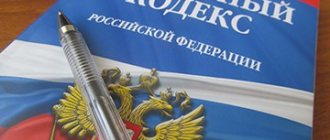Family law
According to family law, close relatives include relatives in a direct line, which can be either ascending or descending, as well as along a horizontal line.
Specifically they are:
- parents;
- children;
- grandmother and grandfather;
- grandchildren;
- brothers and sisters. Both full-born (having a common father and mother) and half-parent (only one parent is common).
The principle of common blood underlies close kinship. As for the spouses... Although there is no blood relationship between them, according to the family code, spouses are also called family members.
Official relations
Are husband and wife related or not? If living together is secured by registration in the registry office, then so-called family relationships arise between people. From the moment of marriage, spouses are considered members of the same family.
In part, they can be called relatives. However, some areas of Russian legislation place spouses in a separate category. Thus, husband and wife are members of the same family. Every citizen should remember this fact.
Criminal procedural and criminal correctional legislation
It is already clearly stated here that close relatives include:
- spouse);
- father and mother;
- son and daughter;
- adoptive parents;
- adopted;
- brothers and sisters, and relatives;
- grandparents;
- grandchildren.
It is noteworthy that Article 51 of the Constitution of the Russian Federation refers to this concept of “close relatives”. It reads: “No one is obliged to testify against himself, his spouse and close relatives, whose circle is determined by federal law.” In this case, federal law means the Criminal Procedure Code of the Russian Federation.
The Code of Criminal Procedure of the Russian Federation separately stipulates the conduct of procedural actions with the participation of close people. For example:
- The interrogation of a minor is carried out only in the presence of his legal representative (parent).
- A citizen has the right not to testify against a relative in court and during investigative actions.
- Legal spouses, as well as blood relatives, have the right to visit their loved one in a correctional facility. While it is difficult for a cohabitant or another person to get a date.
Medicine
What can we say about medicine? The fact is that medical organizations have a certain internal routine. For example, they cannot disclose information about patients’ health status to third parties. And only close relatives can visit the seriously ill.
In this situation, the presence of a registered marriage plays a huge role. Official husband and wife are considered relatives in medicine. In a civil marriage, there is no kinship as such. Medical institutions treat common-law wives and husbands as strangers.
Legislation on social insurance
Domestic legislation establishes the right to receive a funeral benefit if it was provided at the expense of a spouse or close relative.
To pay it, you must write a corresponding application and present it along with the death certificate:
- to the Russian Pension Fund, if the deceased received a pension there;
- employer;
- to the social security department, if the deceased was not insured by the Social Insurance Fund;
- to the Social Insurance Fund, for example, in the event of the death of a minor.
In addition, some employers provide financial assistance in this case.
Housing legislation
The term in question is completely absent in housing law. At the same time, the concept of “family member” is widely used. It is family members who are subject to rights and responsibilities under housing legislation. These include:
- spouse),
- children
- the owner's parents.
In this case, the owner has the right to move in (register) someone else as a family member. It turns out that a family member can be either a relative of the owner or a complete stranger .
Results
Based on all of the above, we can come to the conclusion that the topic under study in Russian legislation does not have an unambiguous interpretation. Are husband and wife related or not? It all depends on the circumstances and the area of law/life involved.
Husbands and wives are 100% members of the same family and spouses. Some believe that they become relatives to each other at the moment of marriage. Someone expresses the opinion that spouses receive the status of relatives after the birth of common children.
Most often, husbands and wives are considered as relatives, but not blood. Former spouses are former relatives, but nothing more. Often they are not considered close people at all.
Close relatives are most often parents, brothers, sisters, wives, husbands, granddaughters, grandchildren, grandparents, children. Usually the latter refers to not only relatives, but also adopted children. All this needs to be paid attention to. Especially in hereditary disputes. Close relatives and spouses in Russia are almost the same thing. Therefore, we can say with confidence that husbands and wives in an official marriage have quite a lot of rights and opportunities.
Inheritance by law
If a will is not left, the inheritance is transferred according to the law. Civil law establishes the order of inheritance.
- The first priority includes : children, spouse and parents of the testator. Grandchildren and their children can also get in first. How is this possible? For example , a grandmother dies, whose only son died before that. Her husband died long ago. But the grandmother still has a grandson. Then he is the heir of the first line.
- Second priority : brothers and sisters of the testator (both full and half-blooded), his grandparents (on the father’s and mother’s sides). Nephews and nephews receive an inheritance if their parents died before or at the same time as the testator.
- Third priority : uncles and aunts of the testator.
- Subsequent lines include: great-grandparents, great-grandchildren, cousins, great-uncles and grandmothers, great-great-grandsons and great-granddaughters, cousins, nephews and nieces, great aunts and uncles. That is, these are relatives of the third, fourth and fifth degrees of kinship. And finally there are the stepson and stepdaughter, stepfather and stepmother.
Thus, civil legislation in the right of inheritance brings spouses and blood relatives to the forefront.
Proof of relationship when inheriting property
When accepting an inheritance, according to the law, it is necessary to confirm to the notary the family relationship with the heir. Depending on the order of inheritance and the distance of relationship, these may be the following documents:
- birth certificate - in case of death of a parent;
- certificate of recognition of paternity - if the child was born outside of an official marriage;
- adoption decision;
- marriage certificate.
Information
If you change your last name, you must confirm the old one by providing supporting documents, which can be a birth certificate or marriage certificate.
Depending on the order of inheritance and the distance of relationship, it will be necessary to provide a more extensive list of documents. If it is not possible to confirm the relationship, the relative can contact the registry office to request the necessary data. If the registry office for some reason cannot provide such information, then the citizen has the right to go to court to recognize family ties.
Inheritance by will
In this case, not only relatives can receive property. At the same time, the legislator protects the interests of close relatives, leaving them a mandatory share in the inheritance. Such citizens include:
- minor or disabled children of the testator;
- his disabled spouse and parents;
- disabled dependents of the testator.
It is impossible not to mention these people in the will. As you can see, blood relatives are also present here.
Tax law
Question: Why is it so important to distinguish between close relatives and other categories of citizens in tax law?
The answer is simple: the first to receive certain preferences.
Income received by close relatives as a gift, as well as by family members, is exempt from taxes. The location of the donor - Russia or abroad - does not matter.
To determine the listed circle of persons, the Tax Code of the Russian Federation makes reference to the Family Code.
This tax privilege applies to transactions concluded between:
- spouses,
- parents and children,
- adoptive parents and adopted children,
- grandfather, grandmother and grandchildren,
- full and half brothers and sisters.
When donating an apartment, for example, from a grandmother to a grandson, personal income tax is not paid. If other persons are involved in the transaction, be it a mother-in-law, cousin or sister, then when receiving property as a gift they are required to pay personal income tax.
In addition, depending on the presence of family ties, the size of the state duty for issuing a certificate of inheritance by a notary differs:
- for children, including adopted children, spouse, parents, full brothers and sisters of the testator, it is 0.3% of the value of the inherited property , but not more than 100,000 rubles;
- for other heirs - 0.6% of the value of the inherited property, but not more than 1,000,000 rubles.
Plus, financial assistance for funerals paid to family members and close relatives is not subject to personal income tax.
Who is a close relative
The law does not establish a uniform meaning for the concept of “close relatives”. Let's look at how different rules of law are interpreted.
According to the Family Code
The meaning of the concept “close relatives” is established in Art. 14 RF IC. The following persons cannot marry each other:
- Mothers, fathers and children.
- Grandparents and grandchildren.
- Brothers and sisters (full and half-siblings).
Art. 137 of the RF IC equates adopted children, adoptive parents and families of adoptive parents with relatives by origin.
According to the Civil Code
There is no exact definition in Civil Law. But Chapter 63 of the Civil Code establishes a list of relatives who have the right to acquire the inheritance of the deceased if there is no will
The order of succession is based on blood ties and marriage ties. Art. 1142 of the Civil Code classifies the spouse, parents and children as first-degree heirs. Grandchildren inherit by right of representation (Article 1146 of the Civil Code).
There are other orders of inheritance:
- Second priority: full and half brothers and sisters of the testator, grandparents (Article 1143 of the Civil Code of the Russian Federation).
- Third priority: uncles and aunts of the testator (Article 1144 of the Civil Code of the Russian Federation).
There is also a fourth line - the great-grandparents of the testator. The fifth is great-aunts and grandfathers, children of nephews and nieces. The sixth stage includes cousins: great-grandchildren and great-grandchildren, nieces and nephews, aunts and uncles (Article 1145 of the Civil Code).
When inheriting, it looks like this: if the testator does not have relatives of the first priority, his property is inherited by relatives of the second in equal shares. In the absence of relatives of the second order, persons belonging to the third order enter into the inheritance.
According to the Labor Code
The Labor Code of the Russian Federation provides for up to 5 days of unpaid leave, which can be provided to an employee in the event of the death of a loved one. Unlike regular leave at your own expense, the employer does not have the right to refuse it. But there are no specific explanations about the circle of such relatives in the Labor Code of the Russian Federation.
In accordance with the letter of the Ministry of Labor and Social Protection of the Russian Federation dated August 30, 2019 No. 4-2/OOG-6315, employers are recommended to be guided by Art. 14 SK.
That is, it will not be possible to get a guaranteed 5 days for the funeral of a son-in-law or aunt. But if you come to an agreement with the employer, he can meet you halfway.
According to the Code of Administrative Offenses and the Code of Criminal Procedure
The Code of Administrative Offenses of the Russian Federation establishes the right of relatives not to testify against each other. Art. 25.6 of the Code of Administrative Offenses of the Russian Federation considers the following to be close relatives:
- children and parents;
- adoptive parents and adopted children;
- grandparents and grandchildren;
- siblings.
Similar norms are specified in Art. 5 Code of Criminal Procedure of the Russian Federation.
Wife and husband
Husband and wife are not relatives, they are spouses. They have no blood connection, and it would be more correct to use the term "family members".
But the law equates them to relatives if the marriage is official. Without this, they have no mutual rights and obligations. If a man and woman have a common child under 18 years of age or a disabled adult child, both are obliged to participate in its maintenance.
Family ties with the spouse’s relatives do not arise even during marriage. That is, the husband's parents are not related to his wife. But according to the law, when inheriting, spouses are heirs of the first priority.
Sister, brother and stepbrothers
In the inheritance procedure by law, brothers and sisters (full and half-blooded) are considered second-order heirs. That is, they receive the right to property in the event that the heir of the first priority (children, parents, spouse) is absent, has renounced his right or is found unworthy. Step (not full) brothers and sisters have all the rights and responsibilities of full brothers and sisters.
What features are important to consider:
- Clause 3 Art. 217 of the Tax Code exempts brothers and sisters from paying personal income tax when receiving property by gift. That is, if a sister gives her brother an apartment, then she will not have to pay 13% of the cost to the state budget.
- Art. 333.24 of the Tax Code includes brothers and sisters in a preferential category when paying state fees when entering into an inheritance.
However, in accordance with paragraph 5 of Art. 220 of the Tax Code, the buyer of an apartment cannot claim a property deduction if he purchased the apartment from a related person. Letters of the Ministry of Finance dated June 29, 2012 No. 03-04-05-/5-801, dated April 3, 2012. No. 03-04-05/7-428, dated 04/02/2012. No. 03-04-05/9-408 determines that such persons include spouses, parents, adoptive parents, children, guardians and wards, brothers and sisters (half and full).
Cousins
The only time when cousins are considered relatives in accordance with the law is inheritance. They receive the property of the deceased by right of representation if the testator’s uncle or aunt died before the opening of the inheritance (Article 1144 of the Civil Code of the Russian Federation).
Grandmothers and grandfathers
Grandparents are excluded from close relatives only by tax legislation. That is, when entering into an inheritance, they pay a fee like strangers. And when buying an apartment from a grandmother, the grandson has the right to claim a tax deduction.
Other branches of law include grandparents in the circle of close relatives. In the case of inheritance by law, they claim the property as heirs of the 2nd stage (Article 1143 of the Civil Code of the Russian Federation).
Stepfathers and stepmothers
Stepfather, stepmother and stepson, stepdaughter are nominal relatives. There is neither a blood connection nor a direct legal connection between them.
The only cases when legal rights arise between them is when they enter into an inheritance. Nominal relatives are considered heirs of the 7th stage in the absence of a will (Article 1145 of the Civil Code of the Russian Federation)
Second cousin
The regulations do not contain benefits or special regulations regarding second cousins. From a legal point of view, they are considered outsiders.
Aunt, Uncle and Nephew
The only mention of uncles and aunts in regulations is their inclusion in the 3rd line of inheritance. That is, they have the right to the nephew’s inheritance if for some reason there are no 1st and 2nd order successors.
Now let's focus on individuals
Sisters and brothers
As can be seen from the previous analysis, full and half-sisters and brothers are united by close kinship in the legal sense.
Half-brothers and sisters are not close relatives.
Grandmothers and grandfathers
They are recognized by law as close relatives. The grandmother is a close relative by law to the grandson in the same way as the grandfather. After all, there is a blood relationship between them. Therefore, grandchildren can claim the inheritance of their grandparents. In the absence of a will to transfer all property to a grandson, he can claim the right to it in order of priority after the death of his grandmother (grandfather).
Mother-in-law with father-in-law and father-in-law with mother-in-law
A mother-in-law with a father-in-law in relation to a son-in-law and a father-in-law with a mother-in-law in relation to a daughter-in-law are united by a relationship of property, but not kinship. At the same time, they can be considered family members.
Stepfather and stepmother
They will be close relatives of the child only if they adopt him. Otherwise, the law of kinship does not recognize them.
Aunts and uncles, nephews and nieces
These are not classified as close relatives by law. However, they are not prohibited from inheriting in third order.
Marriage
The wife is not a close relative of the husband. They are members of the family they created. The registry office will refuse to register a marriage for persons who are related, as well as for adoptive parents and adopted children.
However, the property and special legal regime of joint property are established between the spouses. Each of them claims to share property after a divorce. The spouse, among the children and parents, is ranked as the heir of the first priority by law. Spouses are equal parents for their families. In relation to spouses, issues of restriction or deprivation of parental rights and payment of child support are resolved.
Housing law provides for the right of one spouse to use the housing of the other for some time, subject to certain conditions.
After the divorce, the spouses are no longer family members and lose legal privileges.
Blood relations
The answer is actually not as simple as it seems. It all depends on the situation and how one understands direct kinship.
From a biological point of view, spouses are not related. They are two separate independent individuals who produce offspring. Are husband and wife related? No. They have no blood relationship.
By the way, marriages between close relatives are prohibited in Russia. Therefore, even from the point of view of legislation, spouses cannot have common relatives. Otherwise, the marriage will not be concluded in the registry office.







